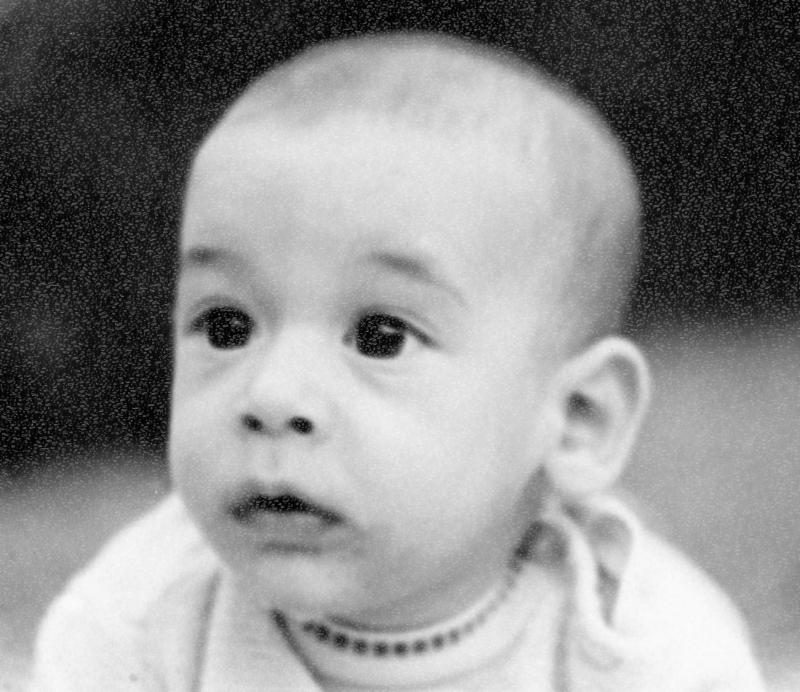How do you embed your love in your child: Va'etchanan
|
ב"ה
How do you embed your love in your child: Va'etchanan
Ed Yisroel Susskind, Ph.D.
August , 2017
 "How much do I love you?", crooned the father to his two year old. They spoke Hebrew in their apartment in Jerusalem.
"Just a little bit," answered the mischievous boy.
And both I and my son Hadar burst into laughter at his first ever joke.
Ever since Hadar could converse, we had had a ritual. I would say to him "How much do I love you? "in Hebrew ( ? כמה אני אוהב אותך ), and Hadar would answer "a lot, a lot" (הרבה ,הרבה ) .
But today the ritual changed, as the rascal playfully answered קצת ("Just a little bit").
My Hadar is now 44. Nonetheless, the words הרבה ,הרבה have special emotional meaning for him, for me, and for my wife. We can say just those two words and we all get the meaning. We don't need a sonnet. I imagine that on the day that I reach my 120th year, he will be comforted by that expression. It is the key to a host of memories.
********
What keys are you giving your children? Are you having a delightful time doing that?
Our most profound memories are not stored as general abstractions. Rather they are deposited in sensory "vessels"; it may be a visual image of a parent's proud smile, a gentle caress, the smell of baked bread, the scent of mother's favorite perfume, a loving nickname, the excitement of a fear overcome, one's first mastery of balancing a bicycle.
********
There is a rather painful, but inspiring, story of another verbal "vessel."
Beginning around 1939, there were Jewish parents who placed their children in Catholic orphanages to hide them from the Nazis. We owe a debt of thanks to the monasteries that took personal risks in defying the Nazis. After the war, there were Rabbis who searched to find those children and bring them back to the Jewish community. Often, the church officials asked for documentation showing which of their orphans were in fact Jewish. The reality of the war was that no such documentation was available.
One attempt we are told about is attributed to Rov Yosef Kahaneman zt'l, the Ponevezhe Rov, who similarly had no "documentation". He asked for permission to enter the children's dormitory late at night. As he walked by the sleeping children, he chanted "Shmah Yisroel Hashem Elokainu Hashem Echad". Children woke up and cried out "Mommy", each in their native tongue. All parties accepted that these children were indeed Jews.
I don't know personally the accuracy of the account. However, I do know that it is equivalent to a mission I heard of directly from the lips of a first-hand participant, Rabbi Yisrael Meir Lau, former chief Ashkenazi Rabbi of Israel.
The 6-word "Shmah" prayer appears in our parsha (Deut. 6:4):
  It is the fundamental declaration of our faith. Jews are obligated to state that prayer in the morning, at night, and at the point where they face death. Jewish mothers have always recited it at bedtime with their children, to inculcate that affirmation.
These children had spent between 3 and 6 tender years, for many more than half of their lives, divorced from their parents and their culture. And yet their mother's bedtime prayer was etched in their souls.
The Shmah declaration appears to be one of Hashem's attempts to forge His love in our consciousness and unconsciousness.
I know that there have been times in my life when I felt frightened and helpless and I found comfort by repeatedly chanting the Shmah.
********
What are you etching in your children's souls ? Are you a beautiful artist? Being an artist can be an exhilarating activity. Are you growing in your skill? Do you revel in touching your children's tenderness? What, from your parents' love, do you carry in your soul?
********
Kirk Douglas , the famous actor and producer, was born into a poor Russian-Jewish American immigrant family. His father was an illiterate, brutal, abusive alcoholic, who earned a meager living, collecting rags ("shmatehs") in an anti-Semitic rural town in upstate New York.
Douglas' autobiography ( The Ragman's Son) demonstrates that he was able to rise above his crippling origins because of the love and kindness of his mother Bryna.
Although, as an adult, he took distance from the Orthodoxy of his childhood home, he describes fondly scenes of his mother's Shabbos preparations. Throughout his adulthood, he religiously kept one mitzvah: He always fasted and attended synagogue on Yom Kippur. Later in life, he was drawn closer to traditional Judaism by Chabad.
At the peak of his career, he created his own movie production firm, which he named the Bryna Company.
********
If I asked your children, "How do you know that your parents love you?", what do you think they would answer? Hopefully, their response would delight you.
********
May it be that Hashem reveals the full depth of His love for us by bringing forth Moshiach, immediately.
For your Shabbes pleasure the following Hydrangea from Nava's garden.
 Dr. Yisroel Susskind is a clinical psychologist who practices locally (in Monsey, New York) and internationally (over the telephone and computer). He lectures worldwide on topics involving Torah, psychology, marriage and interpersonal relationships. He can be reached via email (This email address is being protected from spambots. You need JavaScript enabled to view it.) or by phone (845-304-5481).
If you do not receive these divrei Torah regularly (about twice a month) and you would like to subscribe to these articles , email me or (simpler) click here .
.
|
